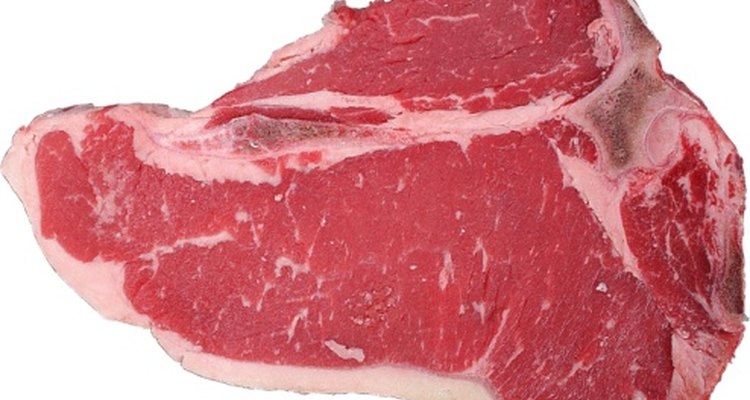
Salt has several effects on meat to aid in tenderizing. The different methods in which salt is applied will add more or less tenderness when cooked. Overall, salt has a hydrating effect on meat as it retains water. Whether it's kosher salt, sea salt or iodized salt, the purpose is for taste and tenderness.
Salting Hours Before Cooking
Applying salt on meat 24 hours or longer before cooking is recommended to tenderize meat and create a balance of saltiness. Before meat is salted, the muscle fibers are wound-up, coiled proteins. Salting meat ahead of time relaxes and uncoils the proteins, similar to the tenderizing action that occurs with marinades.
Salting Right Before Cooking
Salt creates limited tenderness in meat if applied immediately before cooking. The salt draw outs some of water from the meat seeping into the fibers as it dissolves. Cooking meat immediately after salting does not allow all the meat to seep through and is less tender. Meat salted for at least an hour at room temperature is more tenderized.
Brining
Salt used in brining meat works similar to osmosis. The meat is immersed in a large pot of salty water for over a day in the refrigerator. The salt forces through the meat and absorbs into the fibers as it breaks down the protein coils. The meat becomes plump with flavor retaining juice during the cooking process.
Curing
Salt is the main ingredient in curing, which is a process of adding flavor and creating an antimicrobial to stop spoilage and contamination. The curing method is very specific in regard to the length of time and cooling temperature. Salt is applied to the meat until it is completely absorbed, locking in all water. This process helps age the meat and makes it last longer than fresh meat.
Related Articles

How to Make Salt Brine
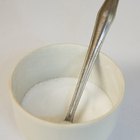
How to Brine a Smoked Beef Brisket

Uses of Saltpeter in Food
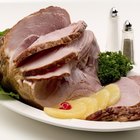
Does Boiled Ham Have Nitrites?
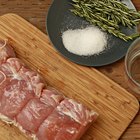
How to Brine Pork Roast

Dilution In Cooking

How to Make a Black Pepper Crust on a ...

How to Do Corned Pork

How to Cook Muskrat
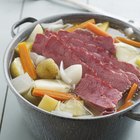
How to Cook a Large Amount of Corned ...

How to Use Wood Chips in a Smoker

How to Smoke Elk Meat

Does Simmering Ground Beef Make It More ...

How to Smoke a Whole Pig Leg

Difference Between Rock Salt and Sea ...

How to Make Jalapeno Beef Jerky

How to Brine Pork Loins
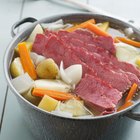
How to Pickle Beef Brisket

How to Soak Deer Meat in Baking Soda

For How Long Do You Tenderize Steak ...
References
Writer Bio
With over 25 years of writing experience, Lisa Huston worked in city government with experience in zoning and urban planning, writing ordinances and policies. She specializes in research and technical writing, and she holds a bachelor's degree in Liberal Studies and minor in Film and Media Studies.
Photo Credits
Zedcor Wholly Owned/PhotoObjects.net/Getty Images